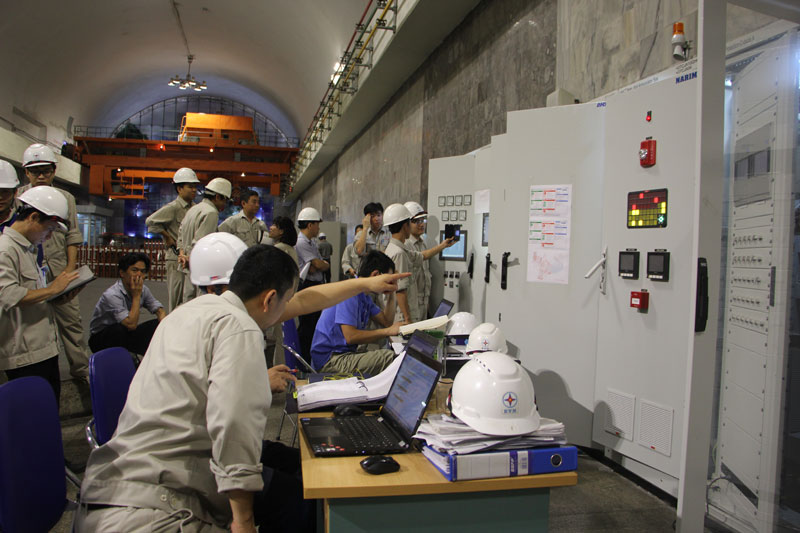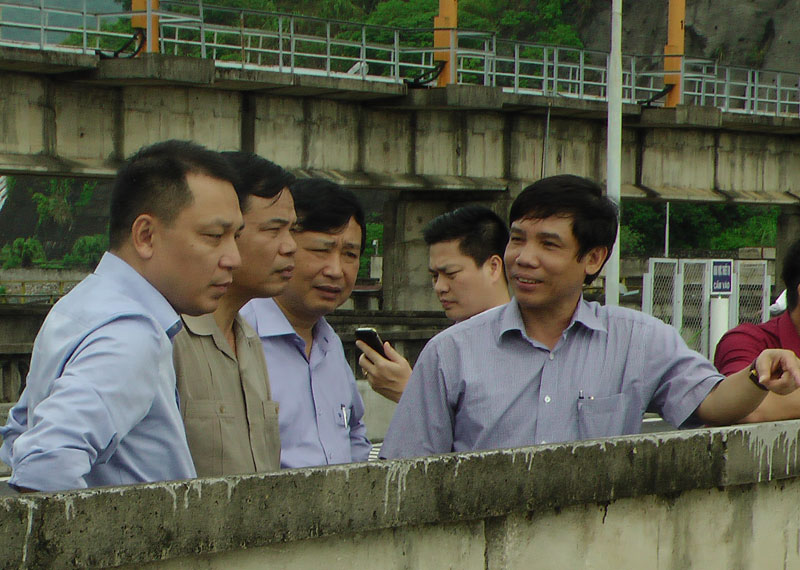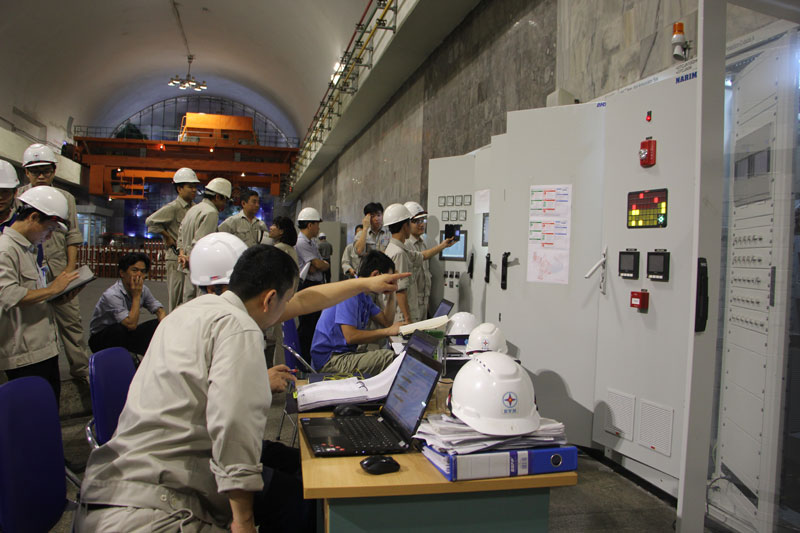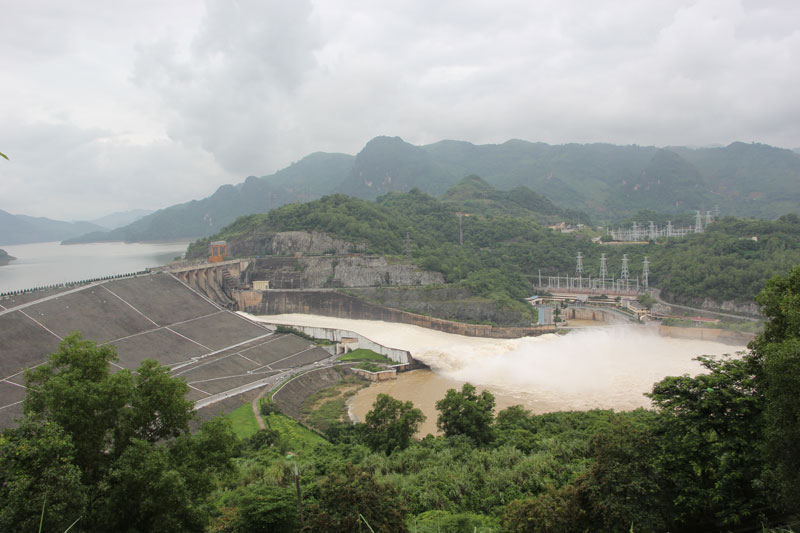
(HBO) – Entering 2017, the Hoa Binh Hydropower Company has encountered a lot of difficulties and challenges, including unfavourable hydrological situation in the early months. The water levels at reservoirs in the Da River in service of the Hoa Binh hydropower plant were over 2m lower than the same period last year.

Director Nguyen Van Minh
(last from right) and a working delegation led by Minister of Agriculture and
Rural Development Nguyen Xuan Cuong and Director General of the Electricity of
Vietnam Dang Hoang An inspect flood discharge at Hoa Binh hydropower plant.
Engineers and workers at a project upgrading the
control system of H7&H8 turbines
Hoa Binh hydropower plant is the pride of the
"shinny river”
The water flowing into the Da river basin is
lower than the average recorded in many previous years, considerably affecting
the power generation of the plant. Apart from generating electricity and
regulating water to prevent droughts and floods, the company is responsible for
repairing equipment and investing in construction. It is implementing a project
to upgrade the control, protection, and measurement system for four turbines.
With the efforts of the whole staff, the company
has completed a large amount of work.
As of August 2017, the company generated 6.98
billion kWh of electricity, fulfilling 70 percent of the yearly target. It also
upgraded the control system for turbines No 7 and No 8 and put them into
operation as scheduled. In January and February, the company increased power
generation for eight turbines and discharged a total of 3.12 billion cubic
meters of water to irrigate the winter-spring crop in the northern delta
region.
To gear up for flood prevention, the company
collected data for analysis and evaluation of the dams’ safety as well as
mapped out plans to prevent natural disasters.
The hydrological situation was quite complicated
in the flood season. Floods came earlier than the same period of previous years
and prolonged from early July to the end of August. The company discharged over
6.5 billion cubic meters of water. The flood discharge was implemented
according to legal regulations.
Besides serving production, the company also deployed
a number of measures to implement a project improving the efficiency of
business production and labour productivity, along with a programme on thrift
practices and wastefulness prevention according to a plan of the Electricity of
Vietnam. Positive outcomes have been achieved.
In the remaining months of this year, the
company will seek to preserve water and ensure sufficient electricity
generation as it was tasked while continuously upgrading the control system of
two turbines.
The company is confident to overcome difficulties
and challenges to fulfill the set targets in 2017.
According to data from the Hoa Binh Provincial Party Committee, the industrial production index for the first six months of 2025 is estimated to have increased by 20% compared to the same period last year. This marks the highest year-on-year growth rate for this period since 2020.
In the first six months of 2025, Hoa Binh province’s export turnover was estimated at 1.145 billion USD, marking an 18.11% increase compared to the same period in 2024. Import turnover was estimated at $ 804 million, a 17.15% increase, which helped the province maintain a positive trade balance.
The lives of the ethnic minority farmers in Tan Lac district have gradually improved thanks to the new directions in agricultural production. This is a testament to the collective strength fostered through the professional associations and groups implemented by various levels of the district’s Farmers’ Union.
With the motto the "product quality comes first,” after nearly one year of establishment and operation, Muong village’s Clean Food Agricultural and Commercial Cooperative, located in Cau Hamlet, Hung Son Commune (Kim Boi district), has launched reputable, high-quality agricultural products to the market that are well-received by consumers. The products such as Muong village’s pork sausage, salt-cured chicken, and salt-cured pork hocks have gradually carved out a place in the market and they are on the path to obtaining the OCOP certification.
In the past, the phrase "bumper harvest, rock-bottom prices" was a familiar refrain for Vietnamese farmers engaged in fragmented, small-scale agriculture. But today, a new spirit is emerging across rural areas of Hoa Binh province - one of collaboration, organisation, and collective economic models that provide a stable foundation for production.
Maintaining growing area codes and packing facility codes in accordance with regulations is a mandatory requirement for agricultural products to be eligible for export. Recently, the Department of Agriculture and Environment of Hoa Binh province has intensified technical supervision of designated farming areas and packing facilities to safeguard the "green passport" that enables its products to access international markets.





